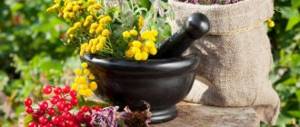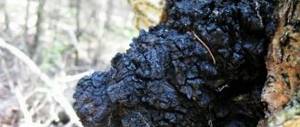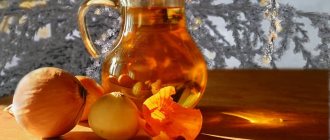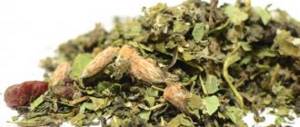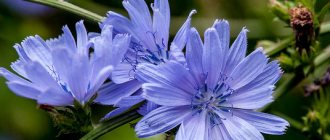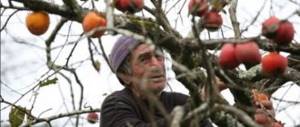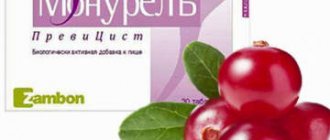Home / Folk remedies
Back
Published: March 23, 2017
Reading time: 2 min
0
196
Cystitis is an unpleasant disease of the genitourinary system affecting women. And in this regard, many patients are interested in such a topic as the use of lingonberries for cystitis. They especially want to know how to take it and whether there are any positive reviews. You will find answers to all questions here.
The main danger of the disease is the absence of preliminary signs. When a disease appears in a woman’s life, it is recommended to visit an antenatal clinic and check with the doctor which treatment is effective.
Chemically synthesized medications give a favorable result and help get rid of the disease. But a number of such tablets have contraindications and side effects.
- Symptoms of cystitis
- Complex treatment
- Use of lingonberries
- Contraindications
- Recipes for the treatment of cystitis
- Reviews of people using lingonberries
Healing properties of berries
Lingonberry is an evergreen low shrub of the heather family. The berry is found throughout the European part of Russia, most of it in Western Siberia and the Far East. The fruits and leaves of the bush are suitable for medicinal purposes.
The latter are used more often, since they can be prepared in larger quantities and are easier to process. When dried, the raw material retains its healing capabilities for up to 3 years.
The lingonberry bush (almost all its parts) contains many rare biologically active compounds:
- Vitamins – C, E, A, B complex;
- Microelements - chromium, copper, potassium, magnesium, calcium, phosphorus and other elements that are rarely found in nature in such a combination;
- Flavonoids are natural antioxidants that protect cells from aging.
Thanks to its unique composition, lingonberries actively fight inflammation. Lingonberry preparations are an effective diuretic: they flush out pathogenic microflora from the genitourinary system. Nature has also endowed other components of the natural medicine formula with beneficial properties:
- Arbutin, malic, tartaric and other acids – provide an antimicrobial effect;
- Tannins – actively fight toxins, bind polysaccharides to proteins, improve intestinal motility and blood clotting;
- Tanning compounds – endowed with anti-inflammatory properties;
- Ascorbic acid – prevention of infections and inflammations, antiseptic properties;
- Vitamin B complex, tocopherol, carotene - support immunity;
- Flavonoids, catechins - strengthen blood vessels;
- Iron – regulates hematopoietic processes;
- Potassium – improves the performance of the heart, blood vessels, and central nervous system;
- Copper and chromium - help control blood pressure, treat coronary artery disease;
- Phosphorus – improves bone health.
Fruit drinks, juices, infusions and other medicines made from lingonberry leaves and berries relieve inflammation, relieve pain, normalize metabolic processes, flush out infections from the urinary tract, have antioxidant properties, relieve fever, reduce “bad” cholesterol, and equalize blood pressure.
Herbal drink
In equal proportions, take sage leaves, lingonberries and chamomile flowers, 1.5 tsp. pour 300 milliliters of boiling water over the raw materials and let it brew thoroughly. After 20-30 minutes the drink is ready to drink. By the way, this medicine can be used not only as a drink, but also for washing. All of the herbs listed are similar in their mild antibacterial effect and show high performance in the treatment of cystitis. The herbal drink can also be used by pregnant women who are contraindicated to consume lingonberries in their pure form.
What are the benefits of lingonberries for women?
The universal capabilities of lingonberries help with various female pathologies:
- Adnexitis - inflammatory processes in the fallopian tubes and ovaries;
- Pyelonephritis – damage to the kidney parenchyma, calyces, renal pelvis;
- Urethritis – infections in the urethra;
- Menstrual pain;
- Cystitis - inflammation of the bladder cavity;
- Hormonal imbalance during menopause.
Lingonberry leaf soothes the inflamed mucous surface of the bladder and genital organs, eliminates discomfort when excreting urine, reduces high fever, improves the quality of emptying the urinary tract, relieves the urethra of pus and mucus, relieves swelling and hyperemia.
Lingonberry leaves are also useful during pregnancy, when antibiotics for cystitis are contraindicated. This is one of the best ways to get rid of inflammation for this category of patients.
Complex treatment
The use of simple medications, as prescribed by the doctor, is a prerequisite for recovery. But often it alone cannot cope with a disease such as cystitis. Therefore, to achieve maximum results, you must follow certain rules:
- Dietary food, where it is imperative to avoid salty, spicy and overly spicy foods.
- Drink as much fluid as possible.
- Monitor your own condition and stay in bed in case of acute pain.
- Fulfilling medication prescriptions.
- Use of herbal medicine.
Medicine prescriptions
Juice, tea or lingonberry juice, as well as decoctions and infusions are used for cystitis to reduce symptoms and consolidate the results of treatment.
- Steamed berries. Place the fruits in an enamel or ceramic bowl and place in the oven. Keep the berries over high heat until they boil, then simmer for about an hour over moderate heat. Transfer the finished product into a glass container and refrigerate.
- A decoction of medicinal herbs. Mix yarrow, rose hips and lingonberry leaves equally. For 1 liter of water, it is enough to take a spoonful of each type of dried raw material. Pour boiling water over the collection and leave for 2 hours. Take 100 ml, frequency of dosage – 4-5 r./day.
- Morse. Boil a pound of fruit with 600 ml of water for 15 minutes. on low heat. Take a drink of 150-200 ml, multiplicity - 3-4 rubles / day.
- Lingonberry drink. Scald 200 ml of berries with boiling water. Then fill them with raw water (0.5 l) and leave for 6 hours. Drink 100 g before meals, frequency of intake – 3-4 times per day.
- Tincture. Fill the jar with fruits and sugar in layers. For 200 g of berries you need to take the same amount of granulated sugar. The mixture is poured with a liter of vodka and left for at least a month. Drink 50-100 ml, multiplicity – 3 times/day.
- Lingonberry tea - pour dry or fresh raw materials with boiling water in a teapot and drink 1 cup instead of tea with honey. up to 3 rubles/day This brew is sold in bags and in pharmacies; it can also be used as lingonberry tea for cystitis.
- Lingonberry juice. Fresh juice is easy to prepare if you have a juicer, sweeten it and drink a quarter glass 2-3 times a day. You can prepare a drink for future use. To do this, the berries are loaded into the jar in parts, compacting each layer tightly until the juice is released. The filled jar is left for a week to mature. Then the liquid must be filtered, heated to 60°C and poured into storage containers. You need to keep the juice in the refrigerator.
- Lingonberry water. A drink with preventative properties is the easiest to prepare. Fill a glass container with washed berries and fill to the top with raw water. Infuse in a dark place in the cold for 2-3 months. Then you can strain, add water and honey to taste. It is better to keep the water in a cold place so that it does not ferment, and drink when necessary.
- Berry jam. For 1 kg of lingonberries, prepare one and a half kilos of sugar and half a liter of water. The washed berries should be blanched in boiling water for 5 minutes. After preparation, the lingonberries are poured with syrup made from the specified amount of sugar and water. Boil the preparation for half an hour and place it in jars. If desired, other fruits and berries are added to the jam during the cooking process.
- Frozen lingonberry compote. Fresh berries are available only in season; it is easier to use frozen fruits, which retain all the valuable properties of fresh raw materials. Half a kilo of these berries must be crushed in a meat grinder or blender. Add sugar to taste and 3 liters of water to the puree. Boil the compote for 5 minutes over low heat and leave until completely cooled.
Lingonberry leaf decoction
Medicines prepared on the basis of lingonberry leaves for cystitis (according to reviews from patients who are expecting a baby) significantly alleviate the course of the disease.
In order to prepare a decoction, you should take 1-1.5 tsp. leaves of the plant (dried), pour a glass of hot water over them, place in a water bath and simmer over low heat for about 30 minutes, covering with a lid. Then the broth is removed, allowed to cool and filtered. The volume of liquid should be increased to 200 milliliters, otherwise the drink will be too concentrated, which can lead to stomach problems. It should be drunk in 2-4 doses throughout the day.
Herbal remedies for cystitis
Lingonberries are also used to make medicines. The Brusniver collection has the same capabilities as natural lingonberries. Together with berries and leaves, bearberry, rose hips, string, and St. John's wort are used in the recipe. The herbal medicine is sold without a doctor's prescription.
Brusniver is used in gynecology (for colpitis and vaginitis), proctology (for anal fissures, proctitis, colitis), urology (for inflammation of the prostate, kidneys and bladder).
Here are some other herbal analogues:
- Monurel – berry extract based on cranberry juice;
- Canephron is a natural analogue based on centaury;
- Phytolysin is a paste based on essential oils;
- Urolesan is a natural complex medicine.
They are used instead of antibiotics if cystitis is mild or to consolidate the effect after drug therapy.
Reviews
“I suffered from cystitis for a long time, tried different pills, but the effect was short-term. They advised me to drink lingonberry tea. After a week, all symptoms disappeared.” Antonina, 38 years old.
“Lingonberry tincture helped me not only with cystitis, but also improved my condition, my immune system became stronger, and I stopped getting colds every three months. I'm pleased with the result." Nikolai, 42 years old.
“I take the lingonberry harvest every year for 10 days for preventive purposes. Previously, every 6 months, bladder inflammation haunted me. Now everything is normal, no symptoms.” Valentina, 51 years old.
Indications for the use of lingonberries as medicine
The range of possibilities of this healing plant is quite wide:
- Diabetes mellitus – helps control glycemia;
- Bronchitis - a vitamin complex quickly relieves cold symptoms;
- Hypertension – normalizes blood pressure, strengthens blood vessels better than synthetic diuretics;
- Tuberculosis – eliminates inflammation in the lungs and Koch’s bacillus;
- Kidneys – treats pyelonephritis and removes kidney stones;
- Urethral tract – relieves inflammation during urethritis;
- Reproductive system – improves performance, kills infection and fungus.
Lingonberry tea
We bring to your attention one of the rather simple, but very effective ways to take lingonberry leaves for cystitis. Take dry powder from the leaves in the amount of one large spoon and brew a glass of boiling water. We insist until the temperature of the drink becomes acceptable for drinking. Take one cup three times a day. Please note: lingonberry tea should not be consumed haphazardly; therapeutic courses should be carried out for 7-14 days, with a break of one month. It is not prohibited to introduce lingonberries into herbal tea in small quantities, but on the contrary, it is recommended.
Are lingonberries suitable for everyone for cystitis?
The use of this type of therapy is dangerous in the following conditions:
- Hypersensitivity to components in the formula;
- Heart pathologies;
- Neurotic disorders;
- Cholecystitis and bile duct dyskinesia;
- Liver dysfunction;
- High stomach acidity;
- Varieties and inflamed gums (periodontitis);
- Gastritis and gastrointestinal ulcers.
Despite its powerful and proven medicinal capabilities, lingonberries must be used in combination with other drugs and procedures prescribed by a doctor to treat cystitis. You can periodically use a folk remedy for prevention.
You can learn more about the treatment of cystitis with folk remedies based on lingonberries from the video.
Contraindications
The use of any folk remedy must be previously agreed with the attending physician. The use of lingonberry tinctures or decoctions can lead to changes in the body, which can harm a woman during pregnancy or if a person suffers from severe chronic diseases. It is not recommended to use it independently to increase blood pressure, in the treatment of cholecystitis, and renal pathology.
If the treating specialist, after carrying out the necessary tests, has not established compelling reasons for refusing to use lingonberries, then it is useful to brew the leaves of this plant and take the infusion in even portions for cystitis. In addition, you can consume fresh berries and juices.

